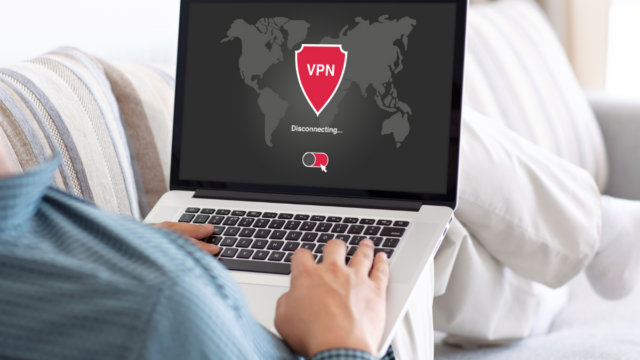The danger of free VPNs

If you want to stay safe, you need a solid self-defense plan. This applies to both the real world and our digital lives. One of the best ways to stay safe online is by using a VPN or a virtual private network.
As a quick recap, a VPN is a cybersecurity tool you download onto your devices. You can hide your IP address, encrypt internet traffic and protect your browsing history. VPNs even help you get around geoblocking, which refers to content barriers based on your location.
With perks like these, it’s easy to understand why Findstack says 68% of American adults use VPNs. But not all VPNs are created equally — especially the free ones. Here’s why you should never use a free VPN.
Reason No. 1: They put you at risk
One of the main benefits of a VPN is anonymity. With a click of a button, you can cloak your browsing history and pretend you’re somewhere else in the world. For instance, when you use our sponsor ExpressVPN, it just takes a few seconds to reroute your IP address to England, Singapore or even Kazakhstan.
A VPN that compromises your privacy is as counterproductive as exercising while eating ice cream. But many free VPNs you’ll stumble upon do the opposite of what they’re supposed to do. Yes, they reroute your IP address, but they also collect your data.
Even worse, they might sell it to third parties to make a buck. If you aren’t careful with your choice of VPN, you could do more harm than good. Kim always says, “If you’re getting something for free, you’re probably the product.”
Reason No. 2: They aren’t very secure
So, you know a free VPN is probably harvesting your data. You may not value your privacy, so you shrug that off for the sake of security. But here’s the thing — a free VPN might not have the resources to create robust security features.
Get this: Some VPNs will actually contain malware.
Cybercriminals hope to attract people who want free resources. They’ll create legitimate-looking VPN apps, promising to protect for free. People fall for the trick hook, line and sinker only to find they’re now surfing the web in shark-infested waters.
Don’t think that all VPNs invade your privacy, though
Many premium VPNs do what they’re supposed to do. Others, like ExpressVPN, go above and beyond to give you a safe and secure browsing experience. You just need to be wary of the free ones since they aren’t worth the trouble more often than not.
Big tech corporations are supposed to safely handle our personal online data, but now they’re getting into the political game. Kim doesn’t want to be a part of that, nor should you. That’s why she trusts and uses ExpressVPN.
These companies match your internet activity to your identity or location by using your public IP address, but with ExpressVPN, no one can see your IP address. No one.
Protect your privacy. Get three months free when you sign up for one year at ExpressVPN.com/Kim.
Tags: apps, cybercriminals, cybersecurity, devices, internet, malware, network, privacy, security, tech

